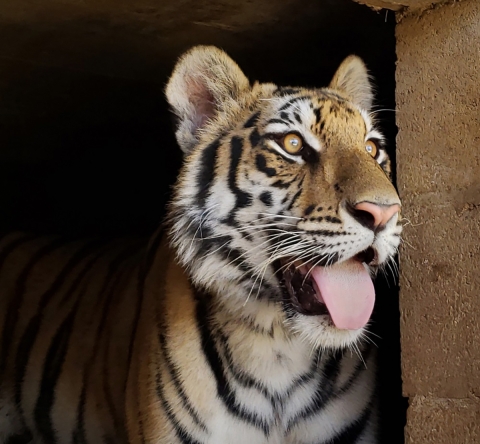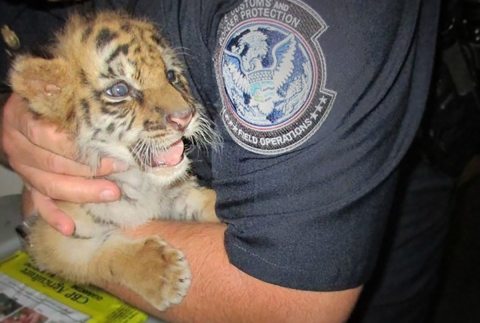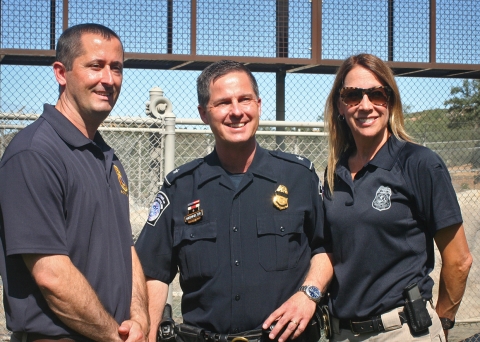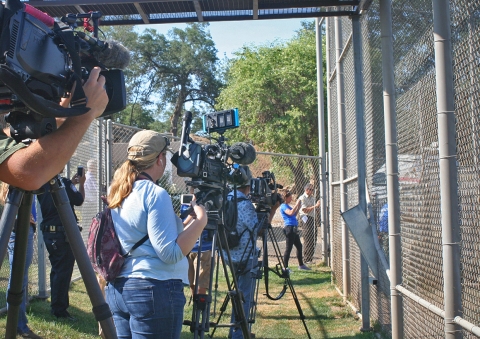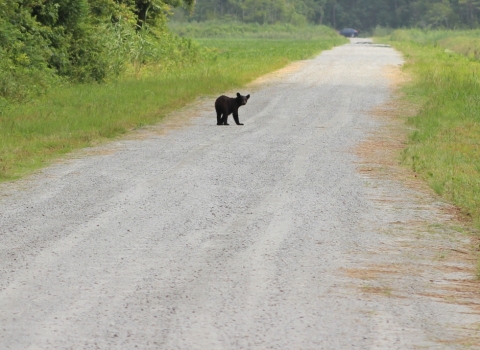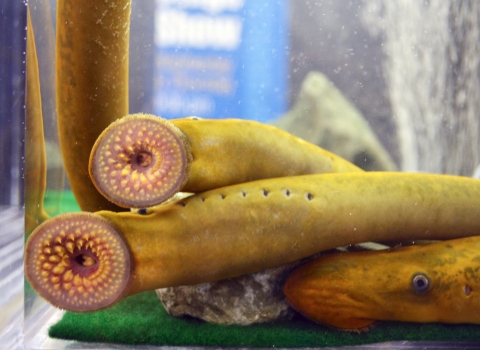With more than 8 million vehicle crossings in 2017, Otay Mesa Port of Entry, 25 miles southeast of San Diego, is one of the busiest border crossings in California. On the night of August 23, 2017, a Customs and Border Protection Officer peered into a car and noticed a small feline on the floor of the front seat. The occupants of the car said it was a domestic cat, but on closer inspection, the officer knew it was no house cat. The feeble feline with unusual markings turned out to be an extremely sick and emaciated hybrid Bengal tiger cub; the latest victim of the illegal wildlife trade.
It is exceedingly rare to find a tiger cub being smuggled across the border, and according to Erin Dean, U.S. Fish and Wildlife Service resident agent in charge for Southern California, the only other known cub smuggling in the state “occurred 20 years ago.”
The animal was immediately transferred to the U.S. Fish and Wildlife Service’s Office of Law Enforcement, which placed the cub with veterinarians at the San Diego Zoo’s Safari Park in Escondido, California.
At Safari Park, the cub earned the name Moka and paired with a Sumatran tiger cub transferred in from the National Zoo in Washington, D.C., for companionship.
Moka is a hybrid Bengal and not suitable for a captive breeding program; therefore, an alternate facility had to be found.
Fortunately, a new permanent home was found with the wildlife sanctuary Lions, Tigers & Bears in Alpine, California. This big cat and exotic animal rescue is federally permitted to house Moka, a cat that will eventually grow to be 300 pounds.
With several recent news stories, Moka’s journey has brought the subject of illegal wildlife trafficking into the limelight. “Wildlife trafficking is huge because it is profitable,” said David Shaw, special agent in charge of Homeland Security Investigations in San Diego. “It takes a coordinated effort among agencies to intercept and prosecute these crimes.”
At a July 2018 press conference welcoming Moka to his new home at the sanctuary, Bobbi Brink, founder and director of Lions, Tigers & Bears said her goal “is to stop the exploitation of animals like Moka.”
The rescue, rehabilitation and permanent rehoming of Moka was accomplished through strong federal and local partnerships.
In early 2018, the two smugglers were successfully prosecuted by the United States Attorney’s Office in Southern California and sentenced to prison.
“To prevent wildlife like Moka from being exploited and to maintain healthy populations of wildlife in their native habitats, please contact the U.S. Fish and Wildlife Service to ask about any products you plan to bring into the U.S. after traveling abroad,” said Dean.

